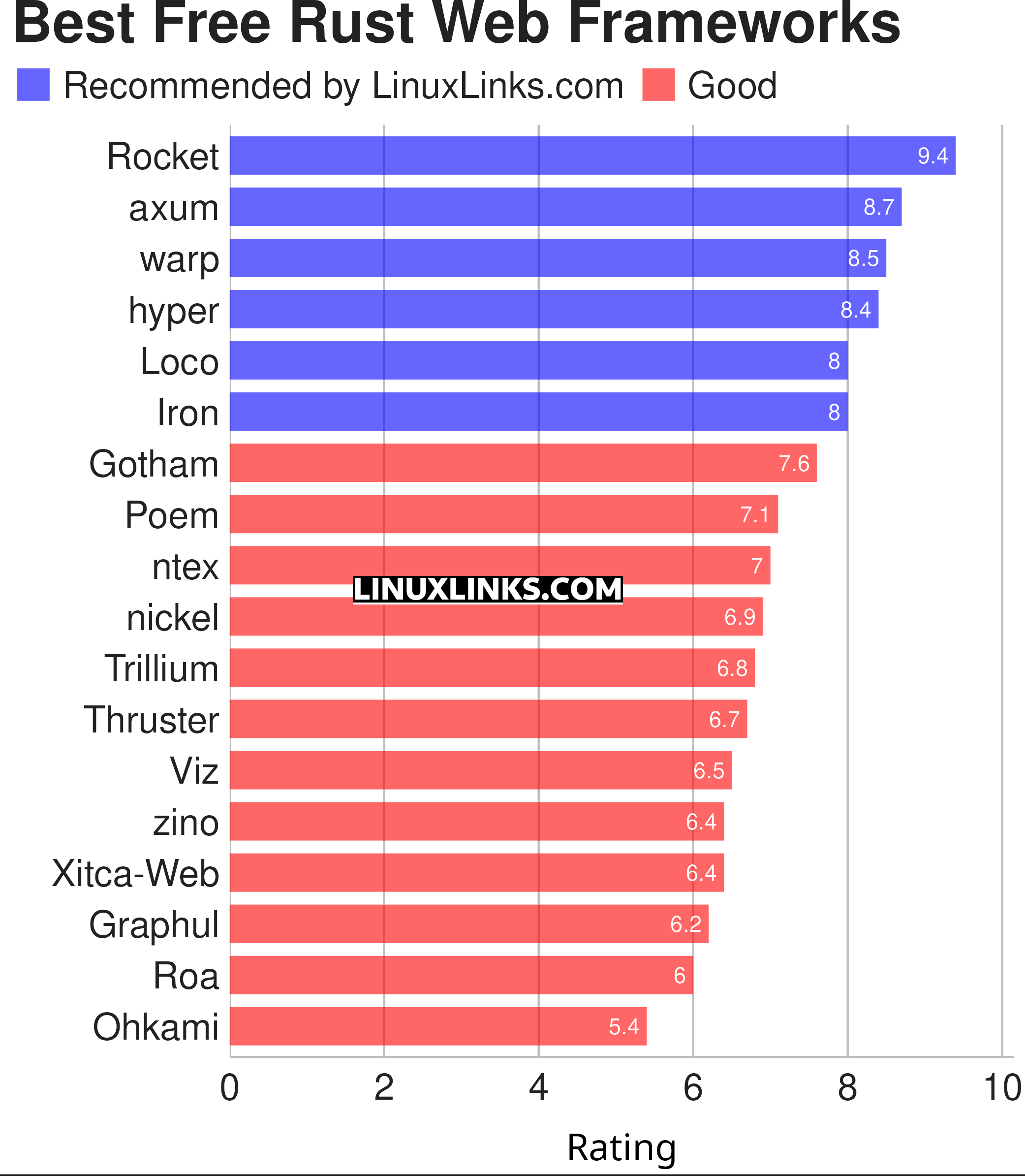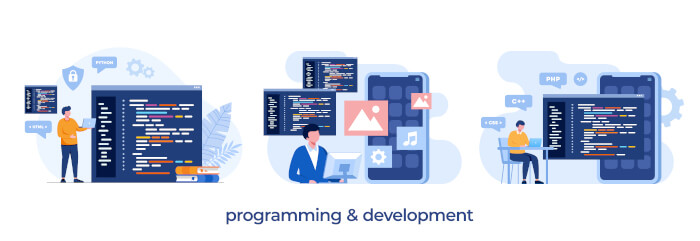One of the types of software that’s important for a web developer is the web framework. A framework “is a code library that makes a developer’s life easier when building reliable, scalable, and maintainable web applications” by providing reusable code or extensions for common operations. By saving development time, developers can concentrate on application logic rather than mundane elements.
A web framework offers the developer a choice about how to solve a specific problem. By using a framework, a developer lets the framework control portions of their application. While it’s perfectly possible to code a web application without using a framework, it’s more practical to use one.
Rust is a systems programming language that runs fast, prevents segmentation faults, and guarantees thread safety. It accomplishes these goals by being memory safe without using garbage collection. The language enables developers to write programs with the performance and control of a low-level language, but with the powerful abstractions of a high-level language.
Here’s our verdict captured in a legendary LinuxLinks-style ratings chart. Only free and open source software is eligible for inclusion.

Let’s explore the 18 Rust web frameworks. For each program we have compiled its own portal page, a full description with an in-depth analysis of its features, together with links to relevant resources.
| Rust Web Frameworks | |
|---|---|
| Rocket | Async web framework focusing on usability, security, extensibility, and speed. |
| axum | Ergonomic and modular web framework |
| warp | Composable, web server framework |
| hyper | Protective and efficient HTTP library |
| Loco | Web or API framework for Rust |
| Iron | Extensible, concurrency focused web development |
| Gotham | Flexible web framework that promotes stability, safety, security and speed |
| Poem | Full-featured and easy-to-use web framework |
| ntex | Framework for composable network services |
| nickel | Simple and lightweight foundation for web applications |
| Trillium | Modular toolkit for building async web applications |
| Thruster | Fast, middleware based, web framework |
| Viz | Fast, robust, flexible, lightweight web framework |
| zino | Next-generation framework for composable applications |
| Xitca-Web | HTTP library and web framework |
| Graphul | Express inspired web framework |
| Roa | Async web framework inspired by koa, lightweight but powerful |
| Ohkami | Intuitive and declarative web framework |
This article has been revamped in line with our recent announcement.
 Read our complete collection of recommended free and open source software. Our curated compilation covers all categories of software. Read our complete collection of recommended free and open source software. Our curated compilation covers all categories of software. Spotted a useful open source Linux program not covered on our site? Please let us know by completing this form. The software collection forms part of our series of informative articles for Linux enthusiasts. There are hundreds of in-depth reviews, open source alternatives to proprietary software from large corporations like Google, Microsoft, Apple, Adobe, IBM, Cisco, Oracle, and Autodesk. There are also fun things to try, hardware, free programming books and tutorials, and much more. |
